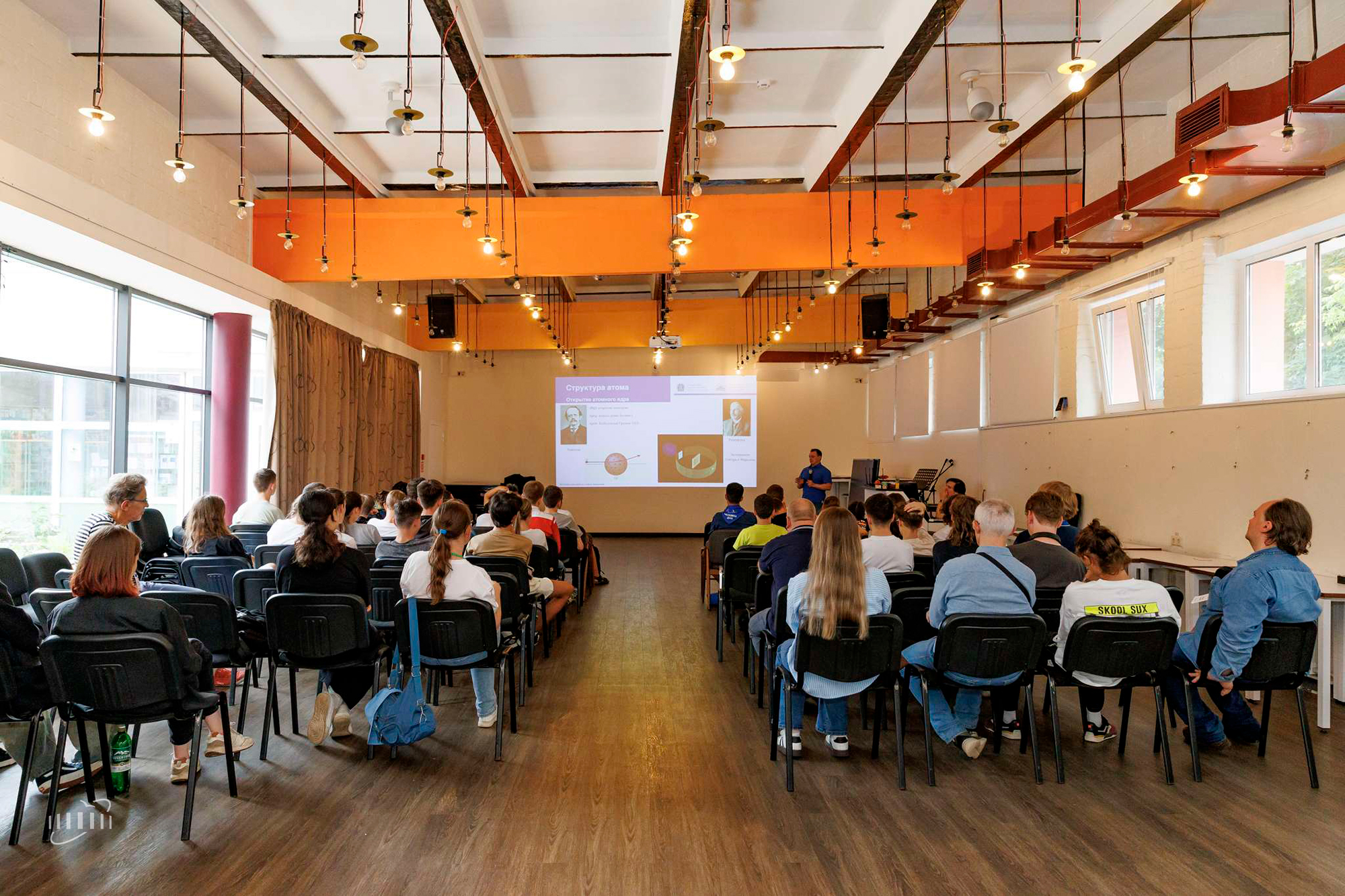Interregional Computer School taking place at JINR
News, 09 August 2025
From 1 to 13 August, Dubna is hosting the 37th Interregional Computer School (ICS), an educational programme aimed at developing students’ research and engineering skills. As always, the event is organized by the Joint Institute for Nuclear Research. Kadyshevsky Physics and Mathematics Lyceum is the school’s partner.
This year, four delegations, formed with the support of the JINR Information Centres in Kamchatka and Primorsky Krais, the Republic of North Ossetia–Alania, and Rostov Region, are taking part in the ICS. In total, 64 participants are involved in the educational programme: 42 schoolchildren aged 12 to 16 and 22 mentors, including student trainees and organizers.
The Interregional Computer School is a platform for the experimental use of project-based learning methods based on modelling principles. This approach is aimed at developing students’ key skills in research, engineering, and design activities. The introduction of such a model makes it possible to significantly increase the effectiveness of the educational process and stimulates the interest of schoolchildren in further education in technical and natural sciences (primarily physics), along with mathematics and computer science.
The school was preceded by a six-day Teachers of the Future educational workshop, during which 20 mentors of the Moscow School of Economics completed a training course on the basics of project-based learning. The joint programme model, first implemented in 2024, has proven to be highly effective and has aroused great interest from JINR partners in Russia’s regions.
The head of the Primorsky Krai delegation, a physics teacher at Secondary School No. 60 (Vladivostok) Nina Amelkina: “ICS is an interesting experience for children. They do not only gain new knowledge in physics, computer science, mathematics, and biology, but also establish useful contacts. Children really enjoy the event. Many come here for the second year in a row, some of this year’s participants are already planning their next year’s projects in order to come back”.
The school will end with a conference, where participants will present the results of research, engineering and design activities in physics, chemistry, biology, and applied modelling.









